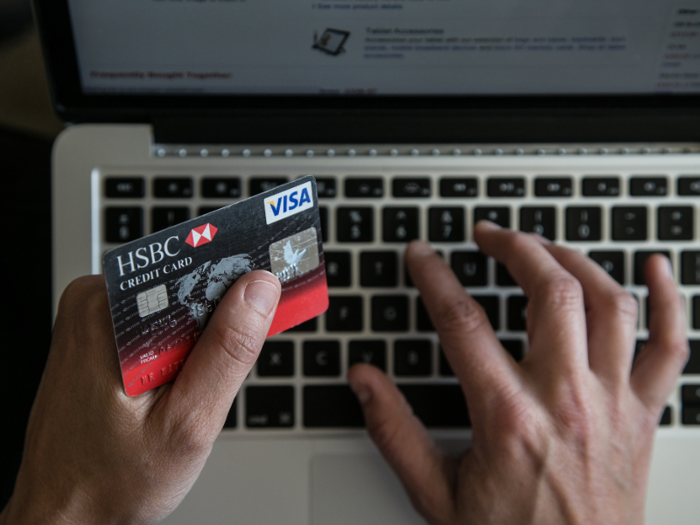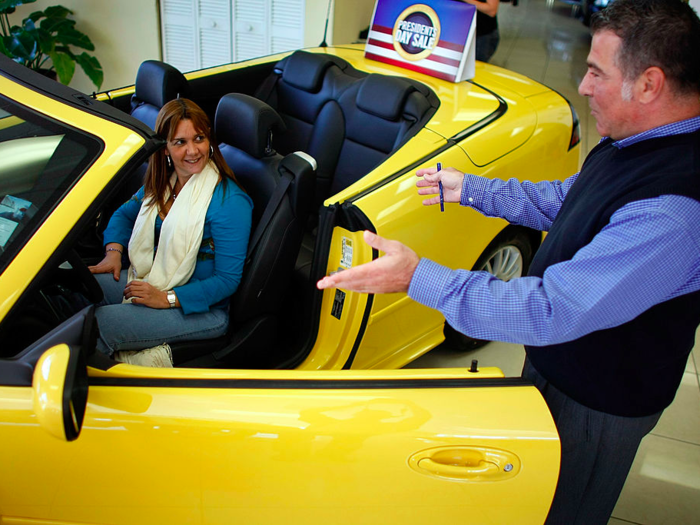- Home
- slideshows
- miscellaneous
- 8 ways to avoid getting scammed when buying a car online
8 ways to avoid getting scammed when buying a car online
Do your shopping on reputable websites

Never send money without meeting

Many scams will ask for money upfront, and plenty of people are happy to ship money over with the promise of their dream car.
The scammer might ask for a wire transfer, a prepaid debit card, or a gift card before even meeting to ensure they don’t “sell” to someone else.
A seller should be OK meeting first before making the sale.
Don’t believe picture you see

A picture says a thousand words. But those words can also be a lie.
“Don’t believe everything you see,” Hutt said.
Remember, photos can be edited and details smudged.
Also, just because a car looks pristine on the outside, it doesn't mean everything is in OK under the hood. Be sure to get a car checked out by a trained mechanic to make sure it’s not a lemon.
Only use sites with secure transactions

Make sure you're shopping for cars only on sites with secure transactions. Unsecured sites leave computers vulnerable to attacks, potentially giving access to personal information.
A good sign is “https” before the URL, as the BBB reminds consumers, "the S is for secure."
Hutt also suggests visiting its site to read reviews to check the quality of the site.
“Use a legitimate car dealer or auction house and check out the BBB ratings for complaint histories,” she said.
Use secure and traceable payments

Along with using sites with secure transactions, it’s always smart to use a form of secure and traceable payment, just in case the sale goes awry.
Never use wire transfers, prepaid credit cards, or non-traditional payment methods, Hutt said. Only pay with traceable, traditional forms of payment. Also, don’t agree to cash-only deals, costly upfront payments, or handshake deals, just in case the seller doesn’t have the best intentions.
And don’t buy from a website suggested by the potential seller as a condition of sale.
Don’t share personal information

Sure, the seller might seem nice and trustworthy, but that could be an act.
Whether buying a car, selling a car, or doing anything else on the internet for that matter, be wary of sharing personal information, including banking and credit card information, your social security and insurance numbers, and your birthday. Scam artists are incredibly crafty with the information they can obtain to figure out even more.
Stay calm under pressure

Just like in physical car dealer situations, don’t fall for the pressure tactics.
Scammers might make a consumer feel like they have to act now or miss out on a great deal. These high-pressure tactics can make a buyer act irrationally and hand over cash or potentially give out information they shouldn’t.
When possible, buy local

Collector car buyers might have trouble with this tip, Hutt said, as rare cars might only be available across the nation. Hopefully, collectors know the best ways to handle their transactions, but sadly that’s not always the case.
“Part of it is collector vehicles — they’re buying something very specific,” Hutt said. “They might be buying something from another part of the country and it’s hard to see in person.”
For normal cases, however, it's best to stay close to home, she said. Searching the internet is great and convenient, but staying local allows a buyer to check out a car in person and meet the seller before making a huge purchase.
Popular Right Now
Popular Keywords
Advertisement